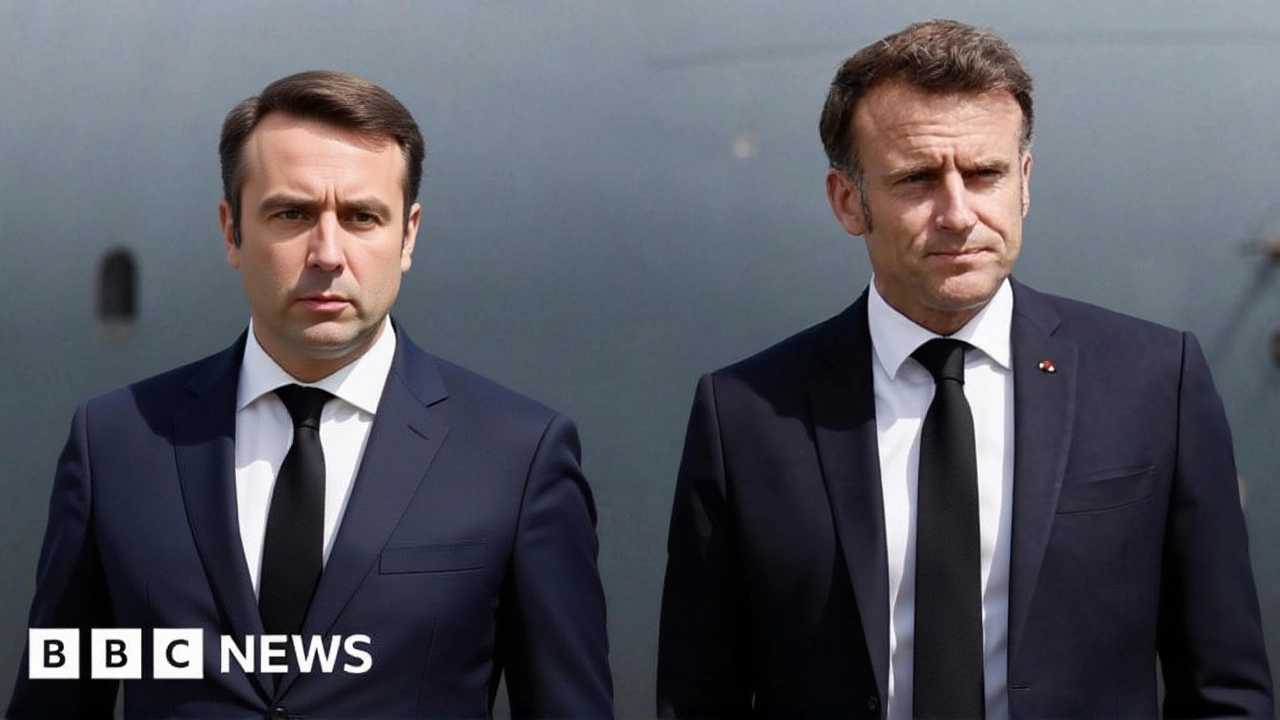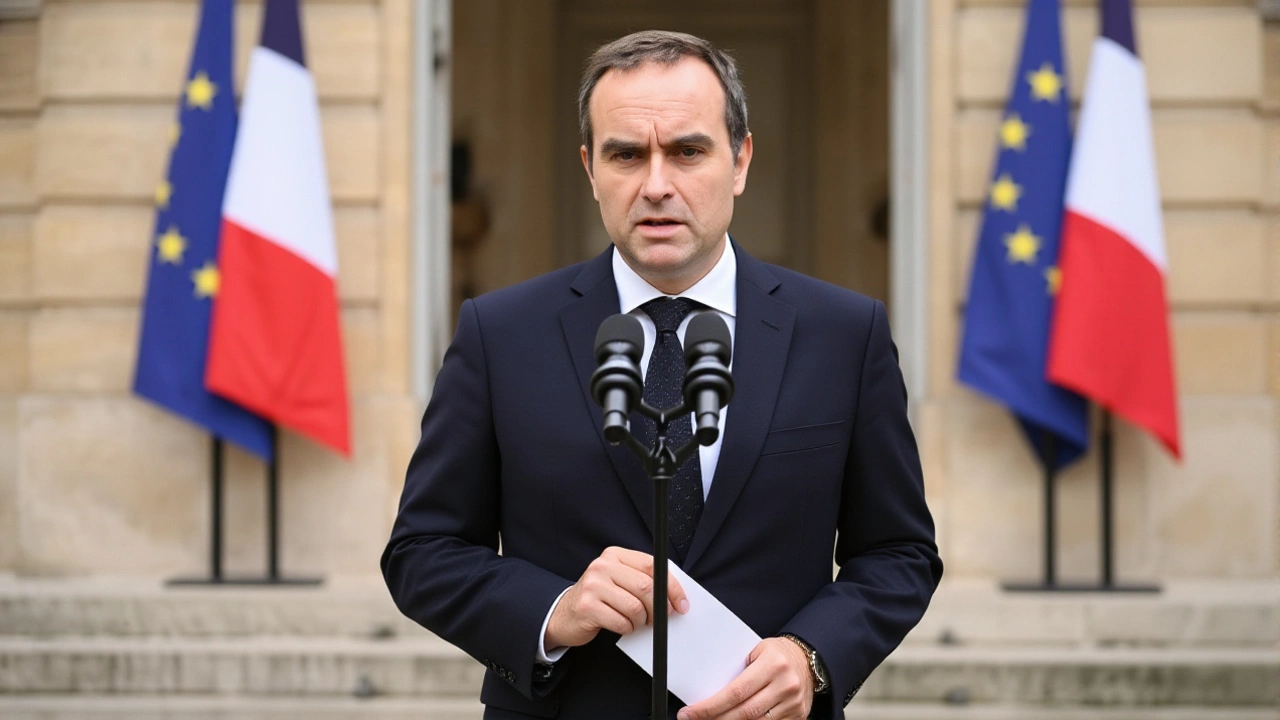When Sébastien Lecornu, prime minister of France handed in his resignation on Monday, October 6, 2025, the country’s political landscape trembled once again.
The shock came just hours after Lecornu unveiled an 18‑minister cabinet the night before. In total, those ministers were officially in post for a mere 836 minutes – a record‑short tenure that has analysts dubbing "the 14‑hour government." President Emmanuel Macron accepted the resignation in a brief statement released by the French presidency, confirming that a caretaker administration is now in place.
Why does this matter? France is already wrestling with a spiralling debt crisis, a fragmented National Assembly, and looming budget negotiations that could shape the nation’s fiscal future. Lecornu’s abrupt exit adds a fresh layer of uncertainty to an already volatile mix.
Historical backdrop: a year of rapid turnovers
France’s political turbulence is not brand‑new. The country has seen three prime ministers in as many months. Before Lecornu, François Bayrou stepped down on September 9, 2025, after his own caretaker government struggled to marshal enough parliamentary support for key reforms. That episode set a precedent: once a prime minister resigns, the appointed ministers continue in a limited caretaker role, unable to push new legislation but allowed to address emergencies.
Back in 2023, a coalition of smaller parties forced a vote of no confidence that toppled a once‑stable administration, signaling the start of what political scientists now call "the era of parliamentary fragmentation." Since then, every government in Paris has had to navigate a splintered assembly where traditional left‑right blocs no longer command a clear majority.
The resignation: timeline and immediate fallout
Here's the thing: the resignation timeline unfolded like a high‑speed drama.
- Sunday, October 5, 2025 – Lecornu announces his cabinet at 20:00 CET.
- Monday, October 6, 2025 – At 09:32 CET, he submits his resignation letter to the Élysée Palace.
- 09:45 CET – President Macron publicly accepts the resignation.
- 10:15 CET – The decree publishing the 18 ministers’ appointments is posted on the Official Journal, confirming their caretaker status.
According to Le Monde, the average tenure of French cabinets over the past decade is 420 days; Lecornu’s 14‑hour stint is an outlier even by those standards.
Legal scholar Paul Cassia, professor of public law at Université Paris‑I‑Panthéon‑Sorbonne, explained that the decree “effectively locks the ministers into a caretaker mode.” In this mode, they can only execute "politically neutral administrative acts," such as processing nonprofit funding applications, but they cannot launch new policy initiatives or amend existing statutes.
Inside the caretaker government
The 18 ministers appointed by Lecornu are now tasked with keeping the state's day‑to‑day operations humming. Their authority is sharply circumscribed:
- They may approve routine administrative decisions.
- They can respond to emergencies – think terrorist attacks or a sudden health crisis.
- They cannot draft new legislation, appoint senior civil servants, or alter taxation structures.
For French citizens, the practical effect is that most public services – from school funding to road maintenance – will continue, but any ambitious reform will be put on hold until a new prime minister is sworn in.
Reactions from the political arena
Opposition leader Marine Le Pen (not a primary entity but worth mentioning) seized on the chaos, declaring, "Macron’s coalition is clearly losing its grip on Parliament, and the French people deserve stability, not endless reshuffles." Meanwhile, centrist parties urged restraint, emphasizing the need for a swift appointment of a new prime minister to restore confidence ahead of the budget vote scheduled for early November.
International markets reacted cautiously. The CAC 40 slipped 1.2% in early trading, reflecting investor anxiety over fiscal policy deadlock. Analysts at BNP Paribas warned that the caretaker period could delay critical debt‑servicing measures, potentially widening the budget deficit beyond the projected 5.3% of GDP for 2025.

Broader implications: budget, debt, and democratic health
France’s upcoming budget is a high‑stakes gamble. The government needs to approve a 2026 fiscal plan that includes €12 billion in spending cuts and a modest tax hike to keep the sovereign debt ceiling from being breached. With a caretaker cabinet, any substantive negotiation with the National Assembly is effectively frozen.
That freeze raises a paradox: while the caretaker government cannot be dismissed by the Assembly – its resignation is already final – it also cannot push the budget forward, meaning the legislature could be left staring at an empty fiscal slot. If the deadline passes without an approved budget, France could face a "government shutdown" of sorts, where non‑essential public services halt and confidence in the eurozone suffers.
Experts argue that this scenario exposes a structural flaw in the Fifth Republic’s semi‑presidential system. "When the executive and legislative branches are so misaligned, the constitution offers few tools to bridge the gap," noted Cassia. Some scholars are now calling for reforms that would allow a caretaker government limited budgetary powers under parliamentary oversight.
What’s next? The hunt for a new prime minister
President Macron is expected to meet with senior party figures later today to discuss his next pick. Rumors abound: former finance minister Bruno Le Maire is a front‑runner, while younger technocrats from the EU staff are also being floated as potential "bridge" candidates.
Whichever name surfaces, the new prime minister will inherit a caretaker cabinet, a fractured parliament, and a ticking fiscal clock. The next few weeks will likely determine whether France can steer clear of a full‑blown constitutional crisis or slip further into political limbo.
Key facts
- Resignation date: Monday, October 6, 2025
- Minutes in office: 836 (approximately 14 hours)
- President: Emmanuel Macron
- Caretaker ministers: 18, limited to administrative duties
- Upcoming budget vote: Early November 2025
Frequently Asked Questions
How does Lecornu’s resignation affect the upcoming budget?
The caretaker government can only handle routine administration; it cannot propose or negotiate new fiscal measures. As a result, the 2026 budget, which includes €12 billion in cuts, will likely be delayed until a new prime minister is appointed and can secure parliamentary support.
What powers does a caretaker government have in France?
Caretaker ministers may perform politically neutral acts, such as processing nonprofit applications or responding to emergencies, but they cannot draft new legislation, alter tax policy, or make major appointments. Their role is essentially to keep the state functioning without shaping its future direction.
Who might replace Lecornu as prime minister?
Speculation points to former finance minister Bruno Le Maire as a likely candidate, given his experience with fiscal policy. Younger technocrats with EU backgrounds are also being considered as possible "bridge" leaders to restore parliamentary confidence.
What does this resignation mean for France’s political stability?
Repeated turnovers erode public trust and complicate governance. With a fragmented National Assembly, each new prime minister faces an uphill battle to build a workable coalition, making long‑term stability increasingly elusive.
Can the French parliament force a new vote on the budget during the caretaker period?
Technically, the Assembly can debate the budget, but without a full‑power government to negotiate amendments, any vote would lack the executive backing needed to become law. This deadlock could push France toward a fiscal impasse.
